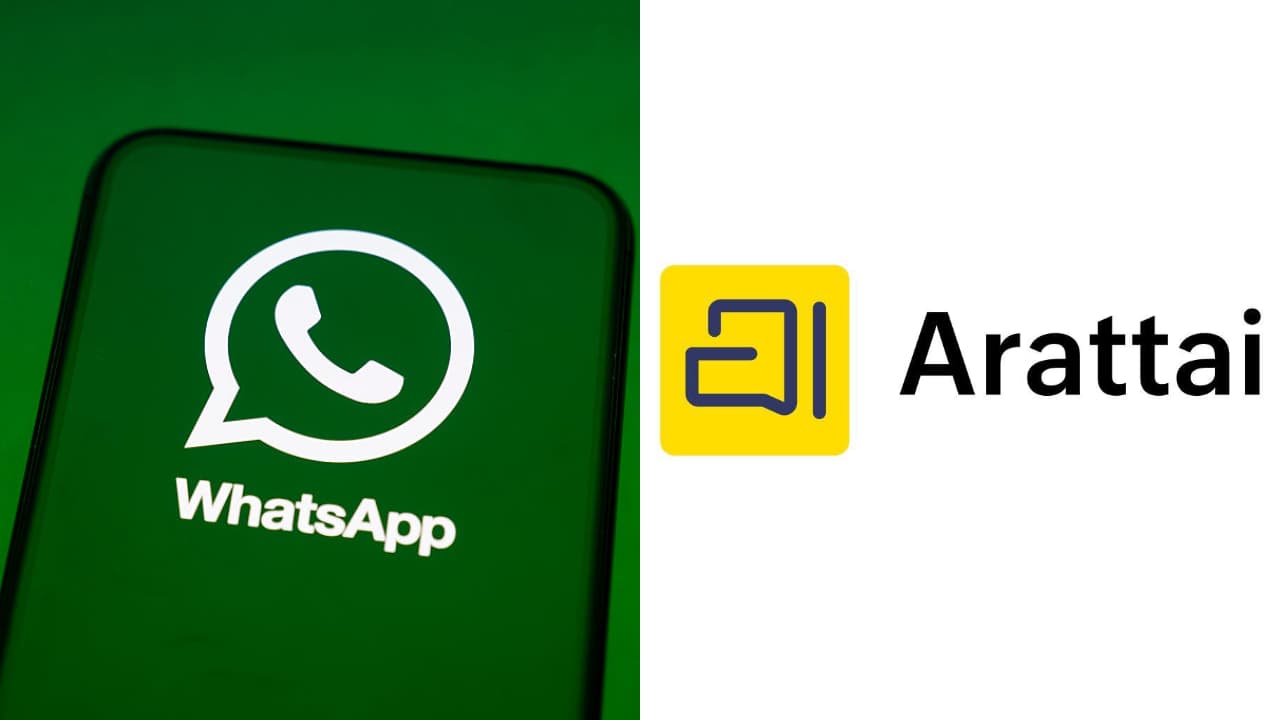In India’s digital ecosystem, the ‘Made-in-India’ app Arattai and global giant WhatsApp offer contrasting approaches to messaging. Arattai champions local needs while WhatsApp provides global reach and end-to-end encryption.
In India’s ever-growing digital ecosystem of 2025, two messaging platforms dominate conversations for very different reasons: Arattai, the Made-in-India app built by Zoho Corporation, and WhatsApp, the global messaging giant owned by Meta. While WhatsApp continues to serve over 3 billion people worldwide, including around 500 million in India, Arattai has been surging in popularity, recently topping the country’s App Store charts. Rather than setting them up as rivals, their stories together highlight two contrasting yet complementary approaches to keeping people connected.
The apps: Local roots vs global reach
Arattai, meaning “casual chat” in Tamil, was launched in January 2021 as part of India’s Atmanirbhar Bharat push for self-reliant digital tools. With Indian-language accessibility, India-based servers, and data storage policies, the app is tailored for local realities like low-end devices and patchy rural networks. It has also earned vocal support from leaders such as Education Minister Dharmendra Pradhan and IT Minister Ashwini Vaishnaw.
WhatsApp, by contrast, has long been India’s most widely used messaging service, embedded in daily life across both cities and villages. Since being acquired by Meta in 2014, it has built its reputation on reliability, ease of use, and its hallmark end-to-end encryption. For many Indians, WhatsApp is as much a part of digital living as phone calls or text messages once were.
Messaging and language
Arattai’s strength lies in regional accessibility. It supports multiple Indian languages like Tamil and Telugu, ensuring inclusivity for rural users. Its lightweight design makes it run smoothly even on 2G or 3G connections.
WhatsApp, meanwhile, has polished features like read receipts, typing indicators, and global-language support. While it includes widely spoken Indian languages, its focus is universal rather than regional.
Privacy and security
Security has become a crucial factor for users deciding between platforms.
WhatsApp provides end-to-end encryption by default across texts, calls, and media, making it a gold standard for privacy, although ownership by Meta continues to raise concerns about data sharing with its ad-driven ecosystem.
Arattai encrypts calls but not text chats, which might be a drawback for strict privacy seekers. However, it stores all data on India-based servers, aligning with digital sovereignty policies, and Zoho has promised not to monetize user information through ads.
Voice, video, and groups
Arattai focuses on low-bandwidth performance. Its voice and video calls remain high-definition even on weaker networks, and it supports large group conversations of up to 1,000 members, alongside broadcast channels for community engagement.
WhatsApp offers seamless calling as well, with groups of up to eight participants in video calls and text groups scaling to 1,024 members. International calls run smoothly thanks to Meta’s infrastructure, and all communications are encrypted end-to-end.
File sharing, stories, and self-storage
Both apps have carved out distinct experiences when it comes to content sharing.
Arattai allows files up to 1 GB, alongside stories for temporary posts. Its standout Pocket feature provides a dedicated self-chat space for storing notes, reminders, and media – a simple but thoughtful productivity tool.
WhatsApp allows files up to 2 GB and has mainstreamed the popular Status feature for updates. It also lets you “chat with yourself” for storing content, with the bonus of end-to-end encryption.
Ads, accessibility, and user experience
Arattai’s philosophy is ad-free and user-first. Its light footprint makes it perfect for budget smartphones and rural areas where connectivity is limited.
WhatsApp has no ads inside the app yet, but its linkage to Meta’s wider ecosystem means data-driven features and potential ad integrations remain a looming concern. Its heavier design can slow down older devices in comparison to Arattai.
Business and productivity
Arattai aims at smaller players – creators, local businesses, and professionals. Its integrated meetings feature works like Microsoft Teams, letting users schedule and host professional calls directly from the app.
WhatsApp runs an expansive Business platform, best suited for scaling operations: payments, catalogs, and Meta ecosystem integrations mean it’s a powerhouse for companies large and small. However, it misses a built-in meeting-scheduling tool – an area where Arattai surprisingly holds an edge.
Who comes out on top?
Declaring a clear “winner” is tricky because the choice depends on user priorities.
For privacy-first users: WhatsApp stands out with complete encryption, but Arattai appeals to those who prefer local servers and no data monetization.
For regional accessibility: Arattai’s language support and rural-friendly design make it unbeatable.
For business and global communication: WhatsApp dominates, yet Arattai has a professional edge with its meeting feature.
For cultural resonance: Arattai embodies a “Swadeshi” digital identity, while WhatsApp remains the universal, globe-spanning tool.
In 2025’s India, both platforms carry weight: WhatsApp as the global standard for instant messaging and business, and Arattai as the rising local alternative that is reshaping digital inclusivity. Rather than choosing one over the other, increasingly, Indians may find a place for both – a global giant for world-spanning connections, and a homegrown gem rooted in local needs.
